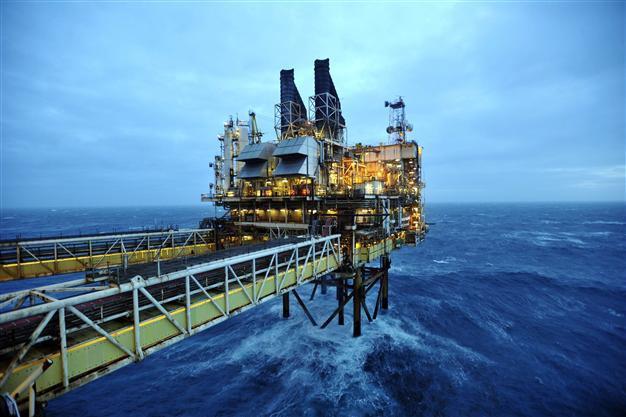OPEC cannot protect oil price: UAE
ABU DHABI - Agence France-Presse

A picture shows section of the BP ETAP (Eastern Trough Area Project) oil platform in the North Sea, around 100 miles east of Aberdeen, Scotland on February 24, 2014. AFP Photo
OPEC cannot protect world oil prices which have plunged since June, the United Arab Emirates said on Jan. 13, adding that rising North American shale oil output needed to be curbed.World prices have been falling since June but the pace of the slide accelerated in November when the Organisation of the Petroleum Exporting Countries (OPEC) decided to maintain its production unchanged at 30 million barrels per day.
Analysts say that richer OPEC members like the UAE have been ready to accept the price fall in the hope that it will force higher-cost shale producers out of the market.
"We cannot continue to be protecting a certain price," UAE Energy Minister Suhail al-Mazrouei said.
"We have seen the oversupply, coming primarily from shale oil, and that needed to be corrected," he told participants in the Gulf Intelligence UAE Energy Forum in Abu Dhabi.
Oil prices continued their slide towards six-year lows in Asian trade on Tuesday after Brent crude closed below $50 a barrel the previous day for the first time since April 2009.
The fall came after Wall Street investment titan Goldman Sachs slashed its price outlook, adding to anxiety about global oversupply, weak demand and soft growth in the key Chinese and European markets.
Brent crude for February delivery fell $1.33 to $46.10 a barrel -- around its lowest point since April 2009.
US benchmark West Texas Intermediate shed $1.13 cents to $44.94 -- its weakest level since March 2009.
Mazrouei said the UAE remains "concerned" about balance in the oil markets but "cannot under any circumstances be the only party responsible," in reference to rising output from non-OPEC members.
Oil producers outside the cartel should be rational in increasing output, he said, insisting that current prices are not sustainable.
"We are telling the market and other producers to be rational, to be like OPEC and look at growth in the market," Mazrouei said.
















